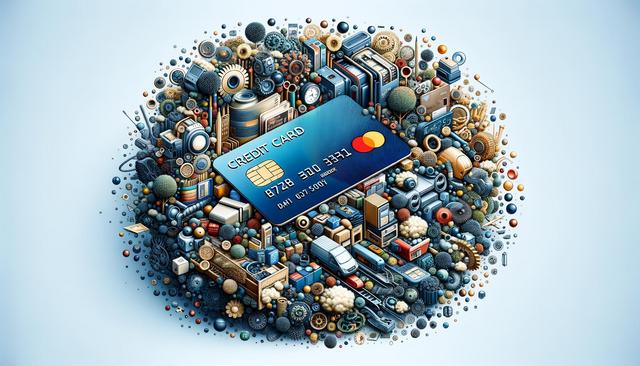What is a Credit Card and How Does it Work?
A credit card is a financial tool issued by a bank or financial institution that allows users to borrow funds up to a specified limit for purchases or cash advances. Unlike debit cards, which draw directly from your bank account, credit cards operate on a revolving credit system. This means you can spend up to your credit limit and either pay off the balance in full each month or make minimum payments while incurring interest on the outstanding amount.
The billing cycle typically lasts around 30 days, followed by a grace period. If you pay your full balance within this grace period, no interest is charged. However, carrying a balance beyond this period results in interest charges, which vary depending on the card and your credit history. Understanding how interest is calculated and the impact of minimum payments is essential to avoid debt accumulation.
In addition to interest, credit cards may include fees such as annual fees, foreign transaction fees, late payment fees, and cash advance charges. Being aware of these potential costs can help you choose a card that aligns with your spending habits and financial goals.
Types of Credit Cards Available
There are several types of credit cards, each designed with specific features to suit different consumer needs. Selecting the right one depends on your financial habits and what you intend to use the card for. Common types include:
- Standard credit cards: Primarily used for everyday purchases with a basic credit limit and no rewards.
- Rewards credit cards: Offer points, miles, or cash back for purchases, often with bonus categories such as groceries or travel.
- Secured credit cards: Require a cash deposit and are ideal for individuals looking to build or rebuild credit.
- Business credit cards: Tailored for small business owners with expense tracking and employee card options.
- Student credit cards: Designed for college students with lower credit limits and simplified features.
Understanding the differences between these cards can help you make a more informed decision. For instance, if you’re focused on improving your credit score, a secured card may be more appropriate, while frequent travelers might prefer a card that earns travel-related rewards.
Benefits of Using Credit Cards Responsibly
When used wisely, credit cards offer a range of advantages that go beyond just convenience. Some of the most notable benefits include:
- Building a credit history: Responsible use of a credit card—such as making timely payments—helps establish a strong credit profile.
- Purchase protection: Many cards provide coverage for damaged or stolen items bought with the card.
- Fraud protection: Cardholders are generally not liable for unauthorized charges if the card is reported lost or stolen promptly.
- Emergency access to funds: In situations where immediate funds are needed, credit cards can serve as a financial cushion.
In addition to these benefits, some cards offer additional perks such as extended warranties, rental car insurance, and access to exclusive events. Taking full advantage of these features requires reading the card’s terms and understanding how to use them effectively.
Potential Risks and How to Avoid Them
While credit cards offer many benefits, they also come with potential pitfalls if not managed carefully. One of the most common issues is accruing high-interest debt by consistently carrying a balance. This can lead to a cycle of debt that becomes difficult to manage over time.
To avoid these risks, consider the following tips:
- Pay your balance in full whenever possible to avoid interest charges.
- Keep your credit utilization low—ideally below 30% of your credit limit.
- Set up reminders or automatic payments to avoid late fees and potential damage to your credit score.
- Read the fine print to understand all terms, including interest rates and fees.
In addition, be cautious of offers that seem too good to be true, such as zero-interest promotions that may revert to high rates after a promotional period. Responsible use involves not only spending within your means but also staying informed about how your card works.
How to Choose the Right Credit Card for Your Needs
Choosing a credit card involves evaluating your financial habits and goals. Before applying, take time to assess what you primarily need from the card. Are you looking to earn rewards, improve your credit score, or finance a large purchase over time?
Here are a few factors to consider when comparing credit card options:
- Interest rates (APR)
- Annual and other fees
- Reward structures and redemption options
- Introductory offers or balance transfer promotions
- Credit score requirements for approval
It’s also wise to compare multiple offers and read customer reviews to understand the experiences of other users. Many financial institutions provide online tools to help you estimate potential rewards or interest expenses based on your spending behavior.
By identifying your priorities and understanding the key features of each card, you can select one that complements your financial lifestyle and long-term goals.
Conclusion: Making Smart Decisions with Credit Cards
Credit cards can be powerful financial tools when used responsibly. They offer flexibility, security, and a means to build credit. However, they also require careful management to avoid debt and fees. Understanding how credit cards work, the types available, and the risks involved allows you to make informed choices that support your financial health. Whether you’re a student, a small business owner, or someone looking to earn rewards, choosing the right card and using it wisely can enhance your overall financial strategy.




Leave a Reply